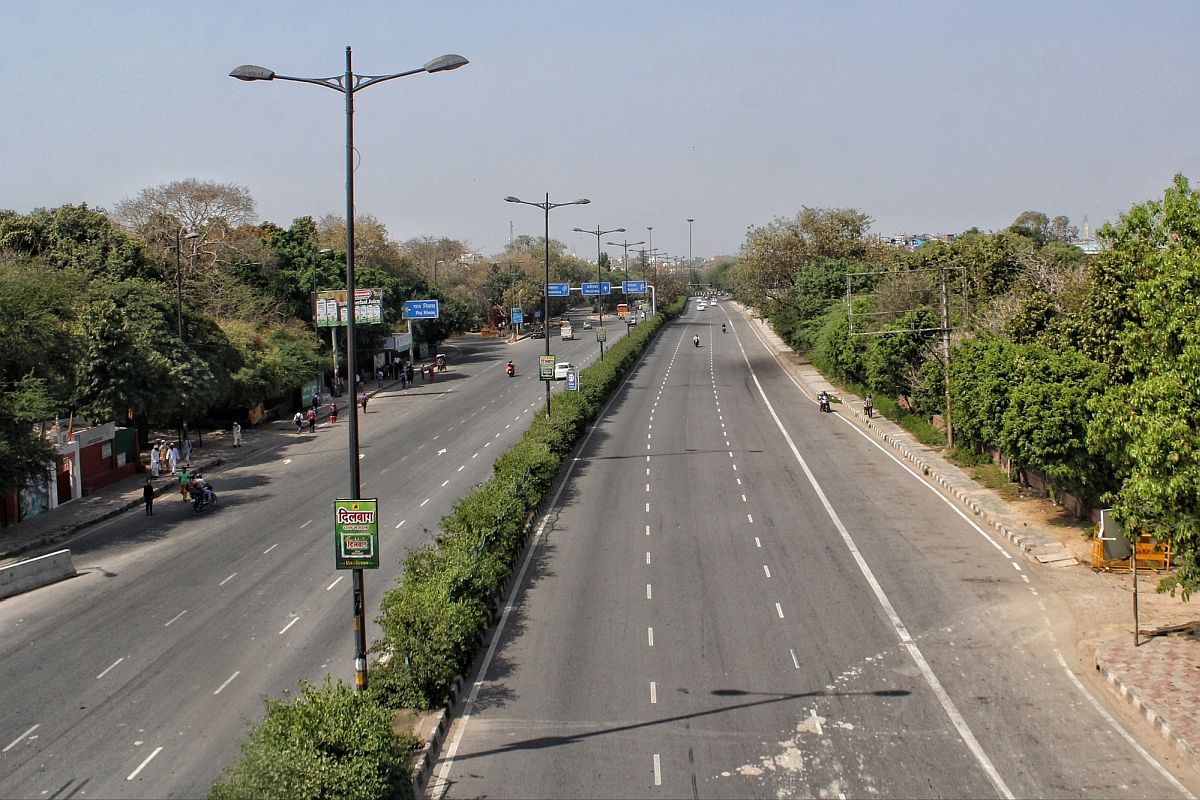Assam’s grand Jhumoir show: 8,000 performers, PM Modi to attend
Assam’s Jhumoir Binandini event on February 24 will feature over 8,000 performers showcasing the traditional Jhumoir dance at Sarusajai Stadium, Guwahati.
Prime Minister Narendra Modi put the entire nation on lockdown for three weeks beginning 25 March.

Delhi streets bear a deserted look during complete lockdown. (Photo: IANS)
Lockdown, according to the Oxford English Dictionary, means confirming of prisoners to their cells, typically in order to gain control during a riot. The Cambridge English Dictionary defines lockdown as a situation in which people are not allowed to enter or leave a building or area freely because of an emergency.
Prime Minister Narendra Modi put the entire nation on lockdown for three weeks beginning 25 March. While the legal fraternity is divided on the interpretation of this North American coinage of 1983 vintage, the Prime Minister has called for a lockdown stricter than the 22 March Janata curfew and the eventual prohibitory orders under Section 144 of CrPC.
Advertisement
He called upon the people to remain where they were and not to cross their own Lakshman Rekha. Restrictions under Section 144 are imposed whenever there is an imminent threat to human life due to riot, communal clashes or disturbance to public order. But a lockdown is imposed under the Epidemic Diseases Act, 1897, on the ground of containing suspected outbreak of a virus epidemic. It is not a curfew.
Advertisement
What we find on the ground is excessive use of police power on unarmed individuals trying to procure essential supplies or medicines, or subjecting innocent labourers thrown out of employment on their padayatra to reach distant villages to humiliation and excessive brutality.
While keeping the entire population of 1.3 billion people indoors may be the only way to contain the spread of coronavirus according to the government, there are other ways of achieving the goal as some Asian countries like South Korea, Taiwan and Singapore have shown.
They have adopted the “Trace, Test and Treat” model to control the spread of the dreaded Covid-19. Without resorting to lockdown even for a day and disrupting public transport or closing its international borders, South Korea launched a vigorous search to trace people who had come in contact with affected persons, conducted large-scale testing of, on an average, 18,000 cases a day, of those having symptoms or suspected to have reasons, and treated the necessary cases.
From a peak of about 1,000 reported cases a day, the situation was brought under control in the shortest period of time. Ninety-five per cent of those treated have recovered. It meant the government taking on the responsibility instead of burdening the people with it. India’s testing rate is among the lowest in the world.
China, the epicentre of coronavirus, managed to control the epidemic without a nationwide lockdown. Monitoring people with recent foreign travel history, particularly from worst affected countries, and the locals who came in contact with them, would have gone a long way in coping with Covid-19. We will soon know if closing down the entire country and imposing the world’s harshest lockdown, made worse by occasional police brutality, works better.
Advertisement